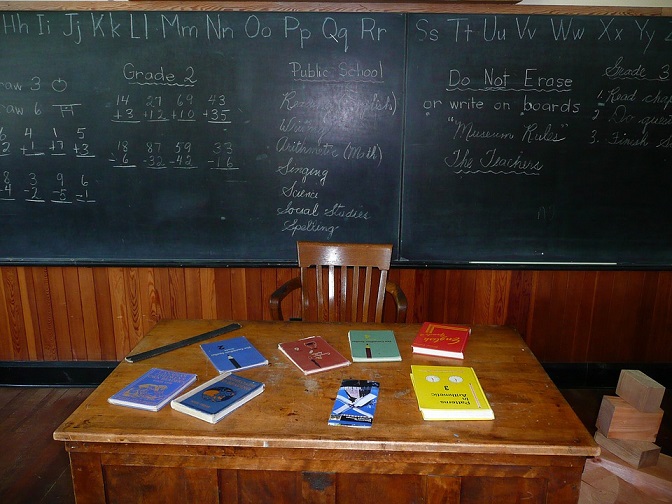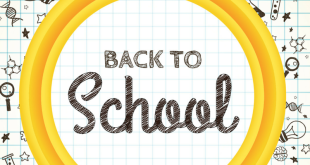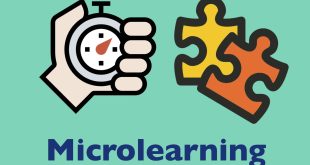It is significantly important for teachers to establish a positive deep relationship and build good rapport with students in class since day one: primary school students and earlier, due to its extreme impact on social and emotional child development.
“The Educator’s Guide to Preventing and Solving Discipline Problems,” published in 2005, revealed to us some deep details about this relationship.
(Read our article on “Classroom Management: To Punish or Not to Punish?“)
We will notice that if a teacher’s relationship with students is secure and positive since primary school and KG, this is consequently reflected on students’ communication with their peers and teachers. For example, the following actions of a teacher help students get more engaged with them:
- A teacher’s smile reflected in all their communication with students.
- Making students feel valued, different, and appreciated through using kind words (some teachers like giving nice nicknames to their students).

On the contrary, we notice that children that do not have positive secure relationships with their teachers have harder and more complex communication with their peers and are in constant trouble with their teachers.
This is why we have approached a group of Egyptian teachers to tell us about their relationship with students and what they like most about their job and the most important things about it.
Try our free Skolera LMS demo by checking our website here.
Table of Contents
1. Treat Your Students as Your Equal
Amany Magdy, a primary school teacher, says that “teaching is very hard (and not very financially rewarding if you go in just for that). However, what I like most about it is that it is fun. I don’t feel that comfortable with anyone except with my students. Dealing with them as equals, as grown, capable adults is easy. If they like you it shows. If not, it still shows!”
The teacher in her realized through her experience that teaching new generations cannot be reduced to a certain curriculum to be taught or money to chase or even theories to benefit from. Yes, we benefit from research, but daily practice is the king in real life.
A teacher’s relationship with students is much larger and deeper than we can discuss here. A teacher not only deals with their minds and conscience, but also their nerves and feelings (Learn 5 Classroom Management Strategies using Skolera).
When you use all your senses as a teacher in class, only then can you reach the hearts and feelings of your students. Reaching their minds after that is a given.
The researcher Gilbert Highet, in his book “the Art of Teaching,” sees teaching as art, not science. For him, teaching is considered a complex group of feelings and emotions that cannot be measured or taught systematically.
He says “Teaching involves emotions, which cannot be systematically appraised and human values which are quite outside the grasp of science. A ‘scientifically’ brought up child would be a pitiable monster.”
When scientific education lacks feelings the learner, according to Highet, almost turns into a monster. Monsters’ know nothing but instincts; they don’t look out except for themselves. You will not find any sort of communication required to build relationships among people.
How can we form appropriate social and humane connections with no possible communication skills to build them? Humans are social creatures and without these kinds of ties, we could either turn into monsters or victims.
There are many activities that reinforce communication within classrooms. Their key and main motivator is the teacher. A teacher’s role in school does not stop only at giving lessons professionally; it is much more than this.
A lot of teachers help students know how to empathize with each other. If someone is absent, they ask about him/her. In case one of their classmates is ill or facing some sort of problem, they may make him/her a gift or write a card and visit them with the teacher.
(If you would you like to know “How LMS Can Help You Motivate Your Students,” press here, or watch the video below.)
Join Skolera Now for FREE
2. Trust: The Core of a Good Relationship with Students
Aya Farid, a previous teacher, says “I used to feel on top of the world whenever I am in class, teaching. Teaching was mainly about feeling very happy when they learn and understand their lesson.”
She goes on saying that you could see the outcome of your efforts and labor in them first and then in their parents when they thank me, when they show how happy they are that their children are learning something new.
She tell us that “Teaching to young students, especially, shows you how important a good relationship with students is, especially when I got absent, even for a single day, for any reason. They show how much they care when they ask whether I am okay or not.”
Moreover, she explains that young students get attached to every single word you say or movement I make. When I used to work as a teacher, sometimes parents would even tell me that their kids are imitating me at home, doing what I do and acting exactly like me.
“What I liked most about this profession is the complete trust students give you. They tell you everything that happened to them the day before, where they went with their parents, and what they played with, everything!,” she says.
3. A Feeling of Accomplishment
Shorouk Mamdouh, a school teacher, tells us that “For me, the best two things you would ever come to meet in our job are simply when you see that look of gratitude in students’ eyes after long tiring hours of planning and when by the end of the course both of you can actually sense the progress they have achieved along the way with you.”
Create Free Account
4. The Relationship with Students: A Story of Victory
Furthermore, Noha Shawky, a fifth grade English teacher at Orouba Language School, Maadi, sees that her passion for teaching started at one of the English Teaching Centers, however different schools are from teaching centers. She says the following:
“Yes, my passion for teaching might be killed by those naughty, quarrelsome child-teenage students I have in my class. However, while working as a school teacher, lesson planning is not my top concern. It’s a matter of feeling you are a mom to different kids, each with different personality.”
Ms. Noha continues “Here we go with a bullied child coming to you to take his side, or a stubborn one who wants you to make him feel important, or another fragile student who just wants to hear positive words he feels he lacks; or you go with them on a trip holding their bags and mobiles while they are playing just as mommies do; or another one who wants to buy something while there is no time and your supervisor disagrees..”

“When I saw him watching his friends with their purchases in their hands, while he had nothing, I found myself holding his hand, rushing with him backwards, and coming across my supervisor saying “sorry, he has to buy something just like all his friends..” I cannot forget the victorious look I saw in his eyes. Yes, it’s a victory for this ten-year old boy. Well, you may not feel you are the best teacher, but you will definitely be touched by those small white-hearted angels,” she concludes her story.
Finally, we notice that the one common factor among all 4 teachers who shared with us some of their best moments was the importance of fully mastering their subject for it to be become easy for their students. You see this reflected in every single word they say as they describe their experience as teachers.
Noha Shawky tells us that “Due to their short -time attention span, you will be a brilliant teacher if you can hook up their attention for a whole 30 minutes.”
A child is at their maximum focus in the first 30 minutes of class. That’s why as a teacher you must completely ready and use every moment you have for a maximum amount of benefit.
After that, you will find “sitting on fire, roaming the class, sharpening their pencils or borrowing one, asking for toilet, side-talking, etc.”
And what about you? Are you a school teacher? We would be pleasured to hear about your experience in classroom and your views on teachers’ relationship with students and how it should be like.
To know more about Skolera—LMS, please press here to request a free demo.
Book FREE Live Demo Now
References:
- The Educator’s Guide to Preventing and Solving Discipline Problems, Mark Boynton and Christine Boynton.
 Skolera LMS Blog Educational Technology Articles and News
Skolera LMS Blog Educational Technology Articles and News





